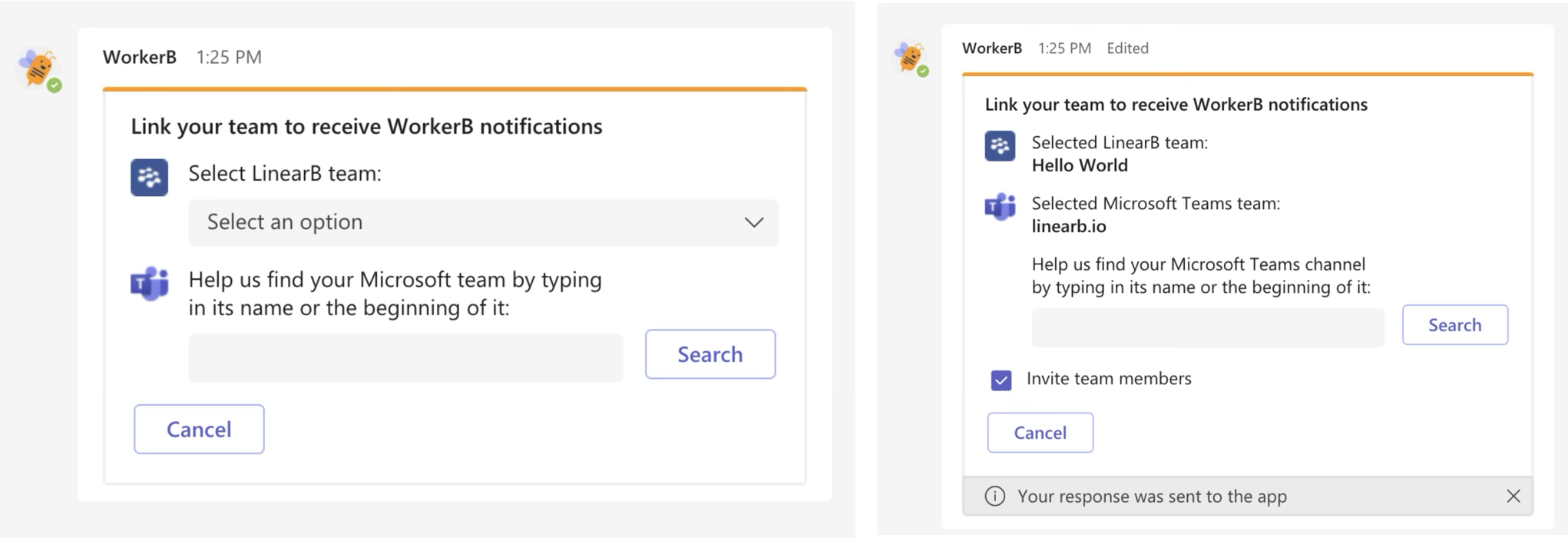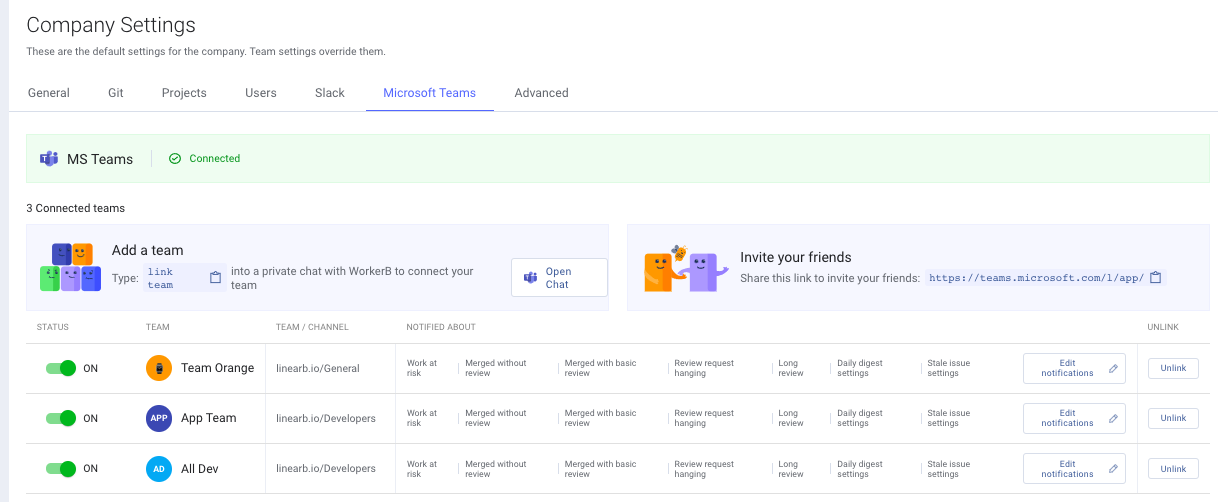Table of Contents
Connecting WorkerB to a Microsoft Teams Channel
Link a Microsoft Teams channel to WorkerB and start receiving PR, review, and risk notifications directly in your team’s workspace—customized to match your workflow and alert thresholds.
Connect LinearB’s WorkerB to a Microsoft Teams channel to send real-time delivery and quality alerts directly to your team. This helps you surface risks and stay on top of review and delivery flow—without leaving Teams.

Prerequisites
- WorkerB installed in your Microsoft Teams environment.
- A LinearB user who can configure team settings (for example, team lead or admin).
- An existing Microsoft Teams team and channel where you want alerts delivered.
Link a LinearB team to a Microsoft Teams channel
- Open the WorkerB bot in Microsoft Teams.
- Type one of the following commands:
link team— standard linking flow.link team -s— enables search (recommended for orgs with many teams/channels).
- Follow the prompts to select:
- The LinearB team you want to link.
- The Microsoft Teams team and channel that should receive alerts.
- In the final step, select the checkbox to invite all team members. This sends each user a personal invite to connect WorkerB and configure their individual alerts.
- Confirm to complete the setup.

After linking, the selected channel shows a confirmation message, and any invited members receive a personal setup notification.

Customize team alerts
After the channel is connected, you can configure which notifications are sent and when.
Path: Settings > Company Settings > Microsoft Teams > Edit Notifications
You can also manage channel notifications (Slack and Teams) from the Team Settings page.
Learn more: Managing and Customizing Notifications

Microsoft Teams channel notifications
WorkerB can post the following alert types to a Microsoft Teams channel. Each alert can be tuned to match your team’s workflow and thresholds.
Work at Risk
Identifies pull requests that may introduce instability due to large code changes or a high percentage of rework/refactor.
- Customizable thresholds: Minimum PR size (20–200+ lines) and minimum % of rework/refactor.
- Default trigger: PRs with more than 100 lines of code and over 50% rework or refactor.
Pull Request Merged Without Review
Surfaces pull requests that were merged without review, even though they included meaningful changes.
- Customizable thresholds: Minimum number of code changes (0–50).
- Default trigger: PRs with more than 20 code changes merged with no reviewer comments.
Merged with Basic Review
Flags pull requests that were merged quickly after minimal review, which may indicate a rushed process.
- Default trigger: PRs with more than 20 code changes merged in under 20 minutes.
Review Request Hanging
Notifies the team when a review request remains unaddressed for too long.
- Customizable thresholds: 0.5–6 days.
- Default trigger: Review requests pending for more than 3 days.
Long Review
Alerts when a code review is taking too long to complete, which may signal a bottleneck.
- Customizable thresholds: 0.5–6 days.
- Default trigger: Reviews exceeding 4 days.
Daily Digest
Delivers a daily summary of key pull request activity—useful for standups or async check-ins.
- Includes:
- PRs with over 100 lines of code
- PRs with more than 6 comments
- Stalled or stuck work
- Configurable time: Set the delivery time from the General tab.
- Learn more: What is a Daily Digest?
How did we do?